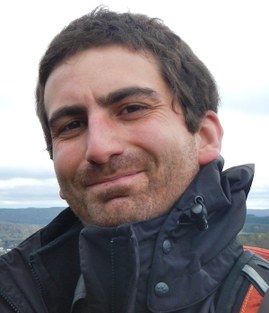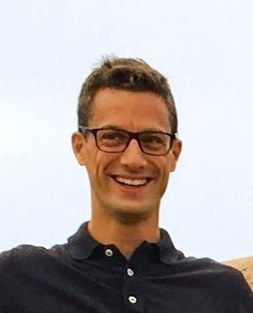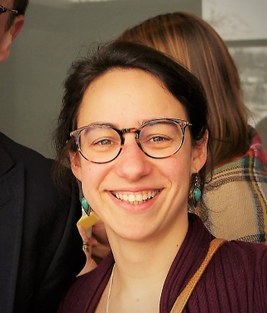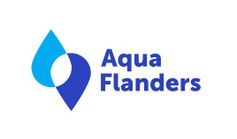Aquaflanders: Chair of sustainable drinking water
The issue of sustainable water provision for Flemish society is ever more present in public discourse. Drinking water is currently a robust sector, and innovation and future-orientated working are gaining increasing ground. All the producers of drinking water are united under AquaFlanders which serves as an advocate. However, the sector is facing numerous challenges in order to keep delivering a steady supply of high quality drinking water to all residents in the future.
The challenges are related to the following domains, including (amongst others): the outdated distribution infrastructure, changes in regulations, the pressure to work without chlorine, climate change, availability of sources, etc. It is impossible for any one producer to resolve these challenges alone and so it is necessary to develop and share knowledge together.
At Ghent University’s Faculty of Bioscience Engineering, there is already a long tradition of research into water quality. This includes, amongst other things, microbial composition, modelling of water distribution systems, interaction between water and (a)biotic materials, organic composition, surface water quality, etc. Research has generally been conducted on an ad-hoc basis together with one or more Flemish drinking water producers, but efforts are now being bundled together.
Objectives
Establishing the “UGent-AquaFlanders academic Chair for sustainable drinking water” offers a chance to bundle together research on drinking water and thereby accelerate it. This also makes it possible to identify questions from the field (from smaller producers, consumers, and policy makers), and to disseminate experiences and results to all Flemish producers and to the general public. Thanks to the existing knowledge and previous activities, the launch of the chair provides a unique chance to become a point of reference, in a short space of time, on issues of sustainable drinking water and distribution.
The first topics under discussion include: the smell and taste of drinking water, the effects of residual chlorine (used for disinfection), microbial composition and (bio)stability, and material use. These general themes can be further expanded or shifted on consultation with the chair’s steering committee and the action plans that are made on a yearly basis.
The chair serves as a way to bring together research related to the provision of sustainable drinking water and, moreover, thanks to its scientific independence and knowledge of the issues at hand, to provide information on the latest insights to the general public, producers of drinking water, and policy-makers.
Strengthening the network
Ghent University already has various networks on ‘the general topic’ of environmental technology. For example, there is the “Evides Chair of Industrial and Circular Water Technology”, the Centre for Environmental Science and Technology (CES&T) and the interuniversity Centre for Advanced Process Technology for Urban Resource recovery (CAPTURE). The AquaFlanders Chair is a fine addition to this network thanks to its specific focus on the provision of drinking water.
Donor
Period
2021 - 2025
Supervisor

Nico Boon is currently the project coordinator of two large national projects "Collaboromics: identification and engineering of core- and satellite populations in (synthetic) microbial ecosystems" (GOA-Ghent University) and "BIOSTABLE: safe drinking water now and in the future" (FWO-SBO). He is a scientific partner of the H2020-project ELECTRA (CE-BIOTEC-04-2018) and of two ITN-projects, SUBLIME and SMARTINCS. He is supervisor or co-supervisor of a number of national projects that deal with the microbial ecology of various environments (FWO, SBO, VLAIO, BELSPO). He was previously coordinator of the most important Belgian research programme, “Inter-university Attraction Pole” (IAP) Phase VII.
Co-supervisors

Prof. Bart De Gusseme obtained a PhD in Applied Biological Sciences in 2011 from Ghent University for his work on the elimination of organic micro-pollutants from waste water and the disinfection of microbiologically contaminated drinking water. He combines both of these topics in his current research into “Industrial microbial technology for drinking water and reuse of (waste)water". In 2015 he was appointed as a part-time Assistant Professor at Ghent University (Centre for Microbial Ecology and Technology), where he teaches the courses ‘Microbial Ecology & Environmental Sanitation’ and ‘Resource Recovery Technology’, and he also gives guest lectures on the production of drinking water and water reuse.
Bart participates in the ‘fit-for-use’ water pipeline of the Centre for Advanced Process Technology for Urban Resource Recovery CAPTURE and has a great affinity with the Flemish and international process water industry and drinking water sector. In 2011 he became project leader at the water company FARYS, where he is responsible for the design and construction of the production sites for drinking water and process water. Drawing on this background, Bart and his team conduct applied research for the water industry with the help of real-time monitoring in order to guarantee the bacterial water quality. He is involved in developing various systems for water reuse, including decentralised treatment in combination with source separation. Bart is co-supervisor of national pilot projects (VLAIO) and the project “"BIOSTABLE: safe drinking water now and in the future" (FWO-SBO).

Elena received a doctorate in applied biological sciences at Ghent University, where she is currently Assistant Professor in the Department of Data-analysis and mathematical modelling. Elena’s research draws on the power of mathematical models in order to facilitate and improve the operation, control, and design of bioprocesses. Mathematical models and digital twins make it possible to provide important insights into process dynamics and kinetics without having to run extensive measurement campaigns. An example of this is virtual test runs which make it possible to test and improve the upscaling of technologies via a virtual platform. Mathematical models can also serve as a means to develop advanced control strategies (such as model predictive control), that can simultaneously take multiple objectives into account, such as different quality indicators or costs. And, finally, they can be used to develop soft (software) sensors that make it possible to make cheap, indirect measurements of hard-to-measure variables of interest.
Elena is one of the leaders of the Capture Digital Water Program and is the current vice chair of the specialisation group "Modelling and integrated assessment" of the International Water Association.
